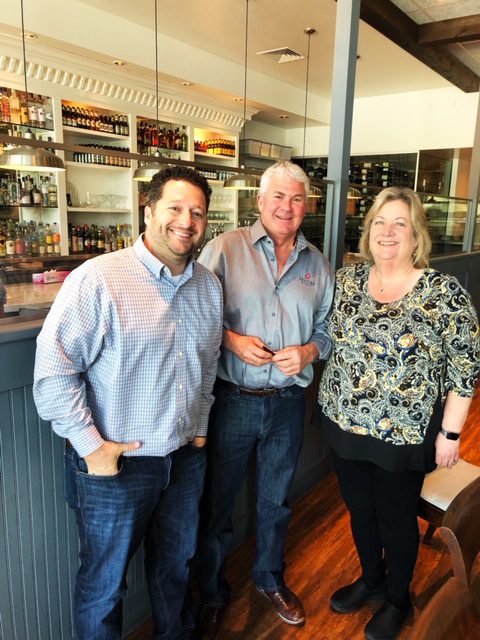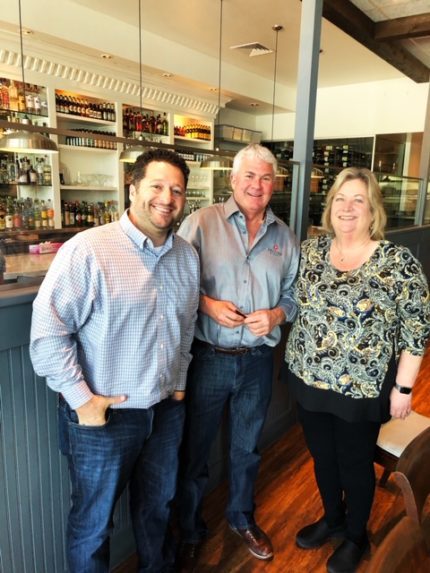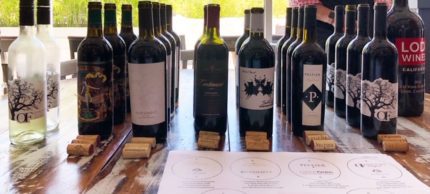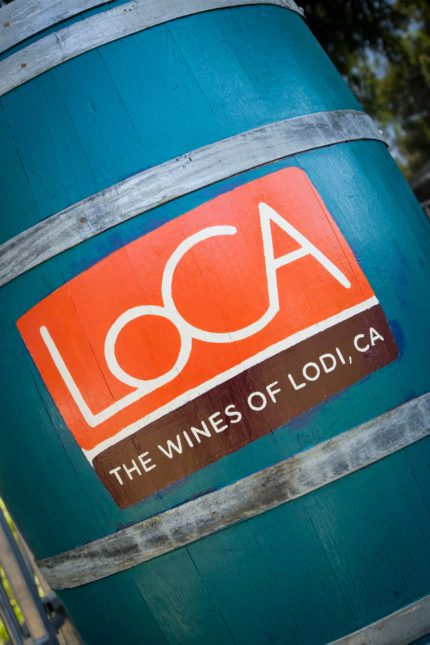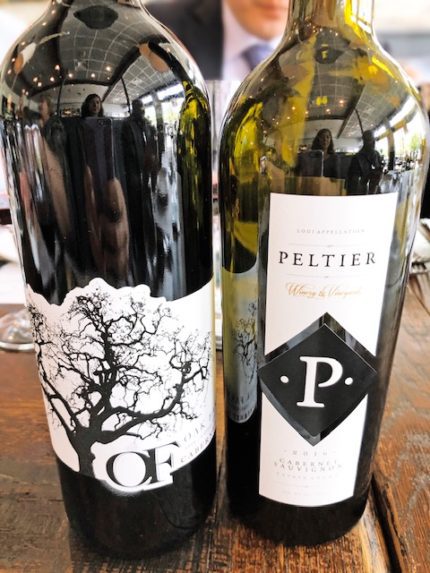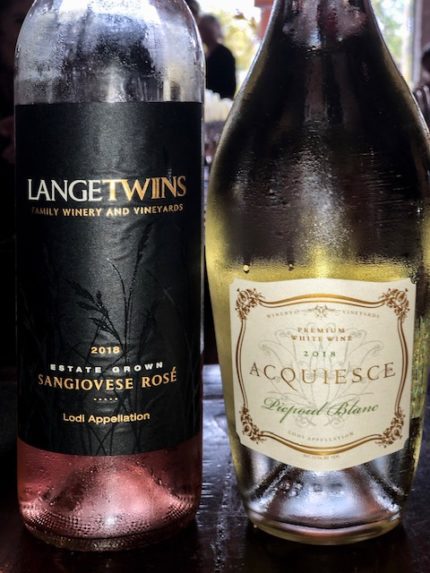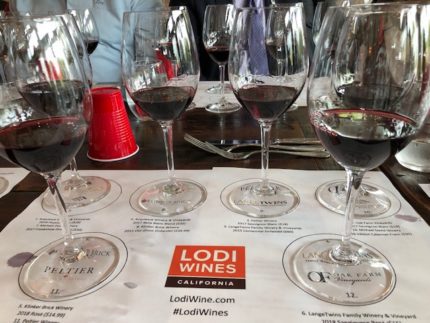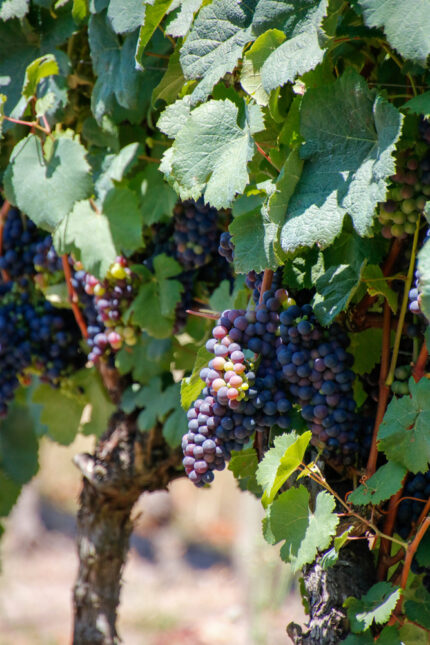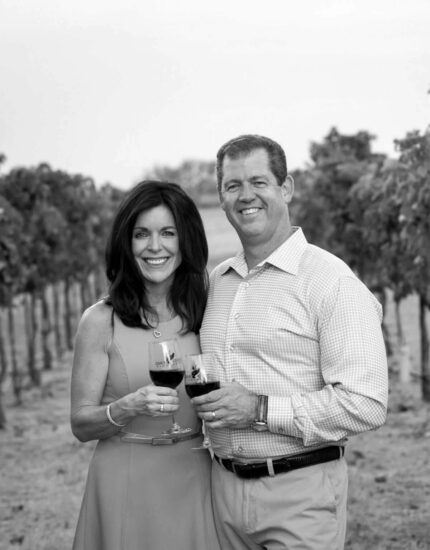Dan Panella, Oak Farm Vineyards, Rodney Schatz of Peltier Winery and Vineyards and Sue Tipton of Acquiesce Winery & Vineyards
Lodi is the self-proclaimed Zinfandel capital of the world, producing more than 32 percent of California’s premium Zinfandel. It is known for diversity – there is a greater variety of wine grapes grown in Lodi than any other region of California with more than 125 in production. What I love about the region is that every time I sit down with winemakers, I get another angle to what makes this region unique. During my recent Lodi lunch in Dallas, at Gemma Restaurant, it was about family.
Lodi wines
It’s the multi-generation of families that grow the grapes and still do business on a handshake. Many of these families, over time, have decided that they wanted to shift from grape growers to wine makers. It’s the sons and daughters still working side by side their fathers and grandfathers to make the best wine that they can. And then, it’s about the succession plan of turning over the business when it’s time. You don’t hear about the big conglomerates buying wineries in Lodi. They don’t appear to be for sale.
Lodi wines
If you haven’t visited Lodi yet, it’s an easy trip. Lodi wine country is located about 90 miles east of San Francisco, just beyond the San Joaquin/Sacramento River Delta. It lies 40 miles south of Sacramento and borders the western foothills of the Sierra Nevada mountain range with 110,000 acres of grapes planted and 750 growers. Top varieties are Cabernet Sauvignon, Chardonnay, Zinfandel and Merlot but don’t be surprised to find Albariño, Tempranillo, Verdelho, Sangiovese, Viognier, Carignan and Syrah. In 1986, the federal government recognized the Lodi American Viticultural Area and in 2005, the seven sub-AVAs in Lodi. Those sub-AVAs are: Cosumnes River, Alta Mesa, Sloughhouse, Borden Ranch, Jahant, Mokelumne River and Hills and they include more than 85 wineries.
I’ve written a lot about Lodi in the past when I’ve visited the region and then attended a few seminars in Dallas. This April, LoCA, the Lodi Winegrape Commission, brought together six wineries for a press lunch to celebrate the diversity, history and multi-generational winegrowing of the region. We met with several pioneers of the industry including Brad Lange, Owner of LangeTwins; Steve Felten, Owner of Klinker Brick; Owner David Phillips of Michael David Winery; Winemaker Dan Panella of Oak Farm Vineyards; Rodney Schatz of Peltier Winery and Vineyards and Sue Tipton of Acquiesce Winery and Vineyards. The wineries were here for the Fort Worth Food and Wine Festival, but met with us at Gemma Restaurant to tell their unique stories and showcase the diverse offerings of Lodi.
I was excited to be seated next to Sue Tipton, who only makes small production premium white and rosé Rhône varietals. Her wines are gorgeous, and she makes Grenache Blanc, Picpoul Blanc, Roussanne, Viognier, Clairette Blanche, Bourboulenc, Belle Blanc (a white blend) and Grenache Rosé that are sourced directly from Château de Beaucastel of Châteauneuf du Pape and they are stunning. Sue planted the Belle Blanc because she fell in love with white Châteauneuf du Pape and couldn’t find it in California. Why not plant it herself so she could actually find and drink more of it? That’s an attitude you find in Lodi!
I also sat next to Rodney Schatz of Peltier Winery and we talked about everything under the sun including what makes Lodi unique. He’s third generation along with his wife, Gayla, and clearly has been an ambassador for the region for a long time.
As we tasted through a diverse portfolio of wines that showcased so many different grapes from families that helped to make Lodi what it is today, passion and perseverance continued to shine through in every story. These families all take care of the people, land and water. There are 23,850 acres that are certified green in the Lodi AVA under The Lodi Rules for Sustainable Winegrowing. The mix of pioneers in the room who made Lodi what it is today, along with the new winemakers like Sue who are taking a completely different approach make me adore Lodi. With Lodi, you can stake your unique position and be embraced for doing so.
Powered byTwitter
